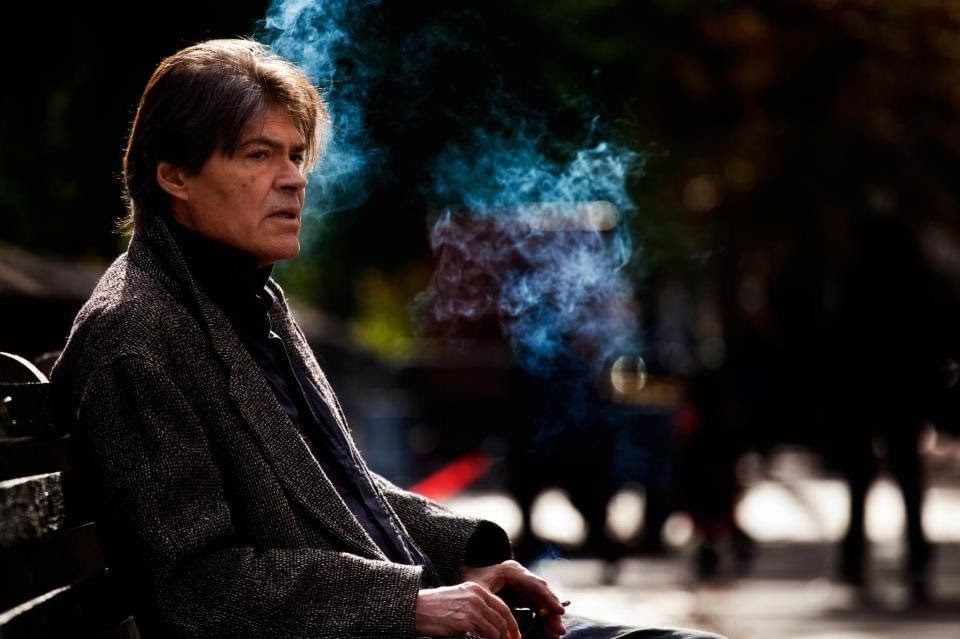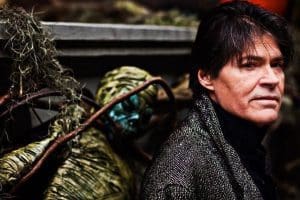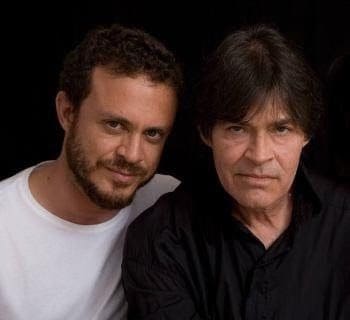
In Memoriam: Jack Ketchum
This article first appeared in Cemetery Dance, courtesy of publisher/bestselling author Richard Chizmar, shortly after the death of author Jack Ketchum. Special thanks to author Stanley Wiater and editor Ellen Datlow. This month Ketchum would have celebrated his 75th birthday. Stephen King said that Ketchum “is on a par with Clive Barker (Hellraiser), James Ellroy (LA Confidential) and Thomas Harris (Silence of the Lambs). The only author writing more important work is Cormac McCarthy (No Country for Old Men).”
Top photo:
“Thinking about writing isn’t writing. Planning to write isn’t writing. Neither is talking about it, posting about it, or complaining how hard it is. These may be part of the process. But only writing is writing.” — Jack Ketchum
Photo: Steve Thornton

“The trick of functioning with grief is that of remembering and forgetting all at once. Of letting the ghost walk at your side but not block the way.” — Jack Ketchum
Photo: Steve Thornton
See this article in the magazine

Turner and Jack
“He is gone. Real gone.” I lay in the hammock, look out at the Pacific and let those words sink down into the shimmering blue. I swipe through Spotify and put on Tom Waits, “Sins of the Father,” and sway for a moment, eyes closed. “Kiss my sweetheart by the Chinaball tree. Everything I have done is between God and me.”
Sadness wells up in me and I struggle to push it down back there into that dark place where tears are waiting. It pulls me to the glass door and leads me through the white villa into the kitchen. I take the knife, carve a piece of mango and rest my hand on the black marble top. Walking across the white ceramic floor in a slow drag dance, it takes me downstairs and I follow it outside, closing the door behind me.
The music fades and I walk 50 paces to the shore at Playa Marbella in Costa Rica. I don’t feel the heat of the sun or sand or hear the chatter of birds and howls of monkeys. I’m deaf to the iguanas that hiss at me and waves which pound me as I swim out. Another 50 strokes and look back at the shore, I hold my breath and sink into the current.
I met Dallas Mayr, his real name, at an Emerson College alumni gathering in midtown Manhattan. He was pulled from a group of admirers, mostly women, and introduced to me. We both drank the same scotch, Dewar’s rocks. I took a Winston from him, which would later be a ritual of ours. It felt like we had met before and the rest of the party fell away except for the women around us. The next day we met at 4:30 at what he called “The Meeting,” at what was then the World Café on the Upper West Side, not far from where he lived. I knew I would be back to live close to him.
When I settled in Manhattan from Boston not long after graduation, “The Meeting” became a part of my life. Writers, artists, actors, white and blue collars mixed from the vibrant flow of Lincoln Center and ABC Studios nearby. Dallas led me like Charon through its waters. The men and women who attended became my extended family.
The first few years I hadn’t read any of Dallas’ books; they weren’t easy to find then. It wasn’t until I got a marketing job at Playboy and happened to stumble upon a copy of Joyride at Barnes & Noble. I had to do something. Only two copies. I took it upon myself to prepare his first press kit, all of his PR materials, whatever I could get my hands on. I dove into a treasure trove of material kept in his apartment on 69th and Broadway where I met Paula and their cats. Beast and Zoe became my favorites. I threw his first big book launch party at Nell’s for The Girl Next Door: Special Edition on 14th Street.
That event was the beginning of our promotions together that for me were just excuses to drink, smoke, talk and laugh together. He had met every love of my life, witnessed every breakup, saw my ascension amongst the ranks and my many descents into Hell. Dallas was responsible for my move to Italy. “Go,” is what he said, “Get outta here and hit Greece, too.” I left everything and went but always stayed in touch.
Dallas and I ate, drank, smoked and traveled together from dozens of towns in Italy, from Milan to the Amalfi Coast, to the island of Malta and the beaches of Costa Rica where I moved after 13 years in Italy. I became what he called his “Idiot Bastard Son” from a song by Frank Zappa. I wore that badge with honor and would end almost every correspondence with him “XO IBS.”
I flew Dallas to visit me in Playa Tamarindo to consult on a script I was writing. He gave me wonderful feedback. He was pale and brittle, his eyes were gray and not the piercing blue I was accustomed to. His gait was slow but he smiled through the pain. The hot weather suited him. He was in better spirits. His cancer later dissipated.
I brought him back to Costa Rica for more work on the script but my real motive was to spend his birthday together. He escaped the New York winter and was pleased with our progress on the script.
I was grateful but felt overwhelmed by his cancer, which had returned. He looked better than before but something told me that it would be the last time that I would see him alive. On that trip, I slowly crumbled and developed what he called “flop sweat.” A nervous fear of failing that for me meant failing Dallas. I ate from a variety of his pills and washed them down with bottles of scotch and got soul sick but Dallas pulled me through. He knew I was suffering. The fear of losing him was unbearable. The man was closer to me than my own father.
As I drift underwater I hear his laughter. The music of Tom Waits returns to my head. “Hoist That Rag” roars below the surface. “We stick our fingers in the ground, heave and turn the world around.” I gasp for air then swim back to shore and lay exhausted and laughing on the beach.
My father is gone but he left me with the most powerful words that for me carries as much weight as “Jesus wept” and those words were “words evoke.” I am meeting the sadness and dancing with it. I feel Dallas here with me on the beach and let the flood of memories fill me with joy.
My father was a generous and gentle soul who was a drinker, smoker and loving philanderer as I loved to call him. He just happened to be Jack Ketchum. He taught me lessons not found in any book and led his life by example. Stephen King called him “an archetype.” He was that in every sense of the word at work and in play.
I walk back to the villa, pour a Dewar’s rocks and take my laptop from the table top to the hammock. I see beautiful women on the beach and dogs playing. I take a sip from my glass and start writing.
